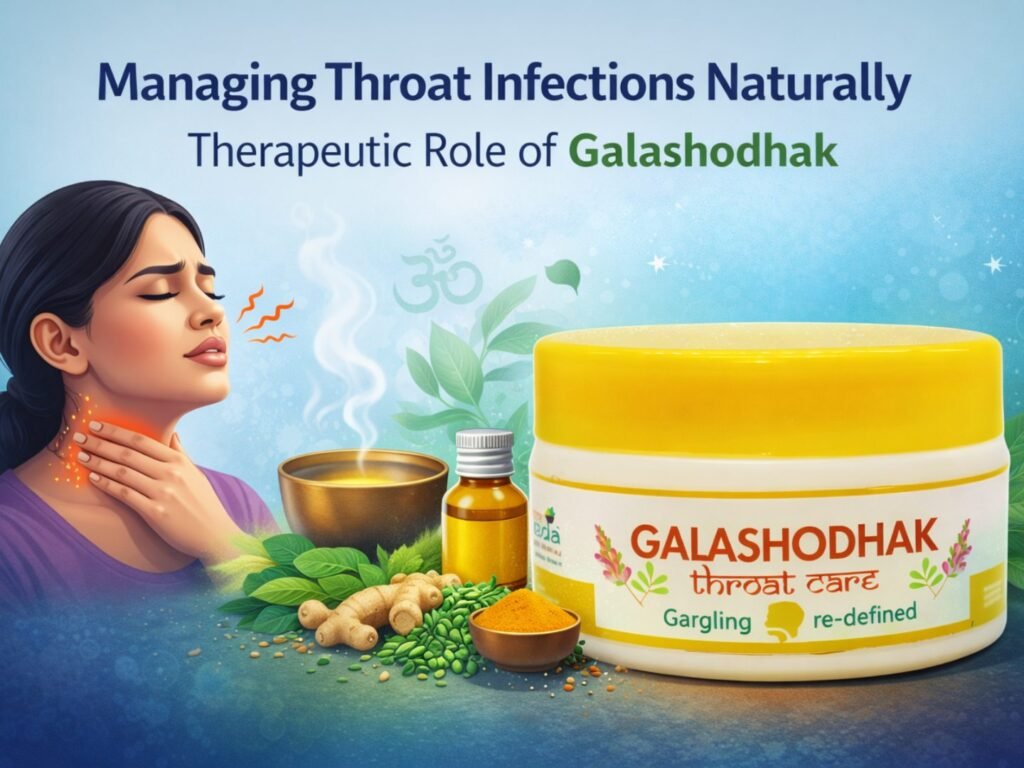Ayurvedic eye care during the rainy season emphasizes a holistic approach to protect and enhance vision. It incorporates dietary adjustments with antioxidant-rich foods and omega-3 fatty acids to strengthen ocular health. Herbal remedies like Triphala and bilberry help boost vision, while saffron nourishes eye tissues. Eye exercises, such as the 20-20-20 rule and palming, promote clarity and reduce strain. Daily routines involve proper hydration, nourishing meals, and limited screen time to maintain eye comfort. Many individuals today seek specialized Ayurvedic Eye Care therapies at an Ayurvedic hospital in Bangalore or a trusted Ayurvedic clinic in Bangalore, where holistic guidance ensures natural protection of eyesight during monsoon challenges. Discovering these traditional yet effective techniques can further support long-term vision health.
Understanding Ayurvedic Principles for Eye Health
Ayurveda, an ancient Indian system of medicine, emphasizes the intricate connection between the body, mind, and environment, particularly in relation to eye health. Central to its philosophy is the belief that vision is not merely a function of the eyes but is deeply interwoven with overall well-being. The principles of Ayurveda advocate for balance among the three doshas—Vata, Pitta, and Kapha—each influencing ocular health uniquely.
For instance, Pitta dosha’s fiery nature can lead to burning sensations, eye strain, and irritation, while Vata’s dryness can diminish clarity, often leading to conditions like dry eyes. This is why more people are turning to Ayurvedic treatment for dry eyes in Bangalore, where therapies include medicated ghee applications, cooling herbal eyewashes, and rejuvenating dietary plans. Kapha imbalances, on the other hand, can lead to heaviness and watery eyes. By promoting harmony through diet, lifestyle, and environmental adjustments, Ayurveda provides a holistic and preventive framework to nurture eyesight, especially in the rainy season when infections and allergies are common.
Herbal Remedies to Strengthen Vision
While the rainy season brings relief from heat, it can also pose challenges to eye health, making herbal remedies an effective means to strengthen vision. Ayurvedic practitioners often recommend:
- Triphala: a classical blend of three fruits, Triphala supports detoxification and enhances ocular strength, reducing strain and combating dryness.
- Bilberry Extract: rich in antioxidants, it is widely celebrated for improving night vision and protecting the retina from oxidative damage.
- Saffron: regarded as one of the most valuable Ayurvedic ingredients, saffron enhances circulation in eye tissues and improves overall vision.
These remedies are often included in customized wellness programs at an Ayurvedic hospital in Bangalore, where holistic formulations are created based on individual dosha imbalances. With regular use under expert supervision, they empower individuals to safeguard vision during fluctuating weather conditions.
Dietary Tips for Healthy Eyes During Monsoon
A nutritious diet plays a vital role in maintaining eye health during the damp monsoon season, which often brings eye infections and allergies. Incorporating antioxidant-rich foods such as carrots, spinach, and blueberries can effectively combat oxidative stress. Omega-3 fatty acids from flaxseeds and walnuts strengthen the retina and reduce inflammation.
Herbal teas infused with tulsi, ginger, or turmeric further detoxify the body, improving circulation and eye comfort. Vitamin C-rich fruits like guavas and oranges help the immune system fight off seasonal infections that may affect the eyes. Turmeric, with its potent anti-inflammatory properties, is another staple in Ayurveda, often recommended to protect delicate eye tissues.
Many wellness experts at Ayurvedic clinics in Bangalore suggest combining these foods with daily routines that include herbal eye drops, creating a preventive shield against monsoon-related eye issues.
Eye Exercises to Enhance Vision Clarity
To enhance clarity, incorporating simple but effective eye exercises into daily routines becomes essential, especially when screen exposure and humidity are high. Some key practices include:
- 20-20-20 Rule: every 20 minutes, look at an object 20 feet away for 20 seconds to relax the eyes.
- Palming: rubbing the palms together and gently placing them over closed eyes provides warmth and relaxation.
- Blinking Exercises: help keep eyes moist and reduce dryness.
- Focusing Techniques: alternating focus between near and far objects strengthens eye muscles.
When practiced regularly, these techniques not only improve vision but also support treatments like Ayurvedic treatment for dry eyes in Bangalore, where exercises are integrated with diet and herbal remedies for maximum benefit.
Daily Routines for Optimal Eye Care in Rainy Weather
The monsoon season brings unique challenges for eye health, requiring consistent preventive care. Ayurveda recommends integrating daily habits such as:
- Hydrating eyes with rose water or herbal eyewashes for cooling and comfort.
- Eating omega-3 and antioxidant-rich meals that protect vision.
- Practicing eye yoga like palming and focusing exercises to reduce fatigue.
- Limiting screen time and ensuring proper lighting while reading or working.
- Taking periodic breaks to relax and rejuvenate the eyes.
In many cases, visiting an Ayurvedic hospital in Bangalore ensures that these daily practices are customized to one’s dosha type, making vision care both preventive and restorative during the rainy season.
Frequently Asked Questions
Can Ayurvedic Treatments Cure Existing Eye Conditions?
Ayurvedic remedies support eye health by balancing doshas and strengthening the eyes. While they may not always replace modern treatments, they work effectively as complementary care.
How Long Should I Follow Ayurvedic Eye Care Practices?
Noticeable results often appear within weeks, though ongoing practice is needed for long-term eye health. Many patients at Ayurvedic clinics in Bangalore are advised to continue maintenance routines tailored to their needs.
Are There Any Side Effects of Ayurvedic Eye Remedies?
Ayurvedic eye care is generally safe, but mild irritation or allergies may occur. Consulting experts ensures the correct herbs and formulations are used for individual conditions.
Can I Combine Ayurvedic Care With Conventional Eye Treatments?
Yes. Ayurveda complements modern care when guided by qualified practitioners, helping patients achieve holistic wellness without conflicting treatments.
What Age Is Suitable for Starting Ayurvedic Eye Care?
Children and adults alike can benefit from Ayurvedic practices. Starting early, under professional guidance, builds long-term vision resilience.












